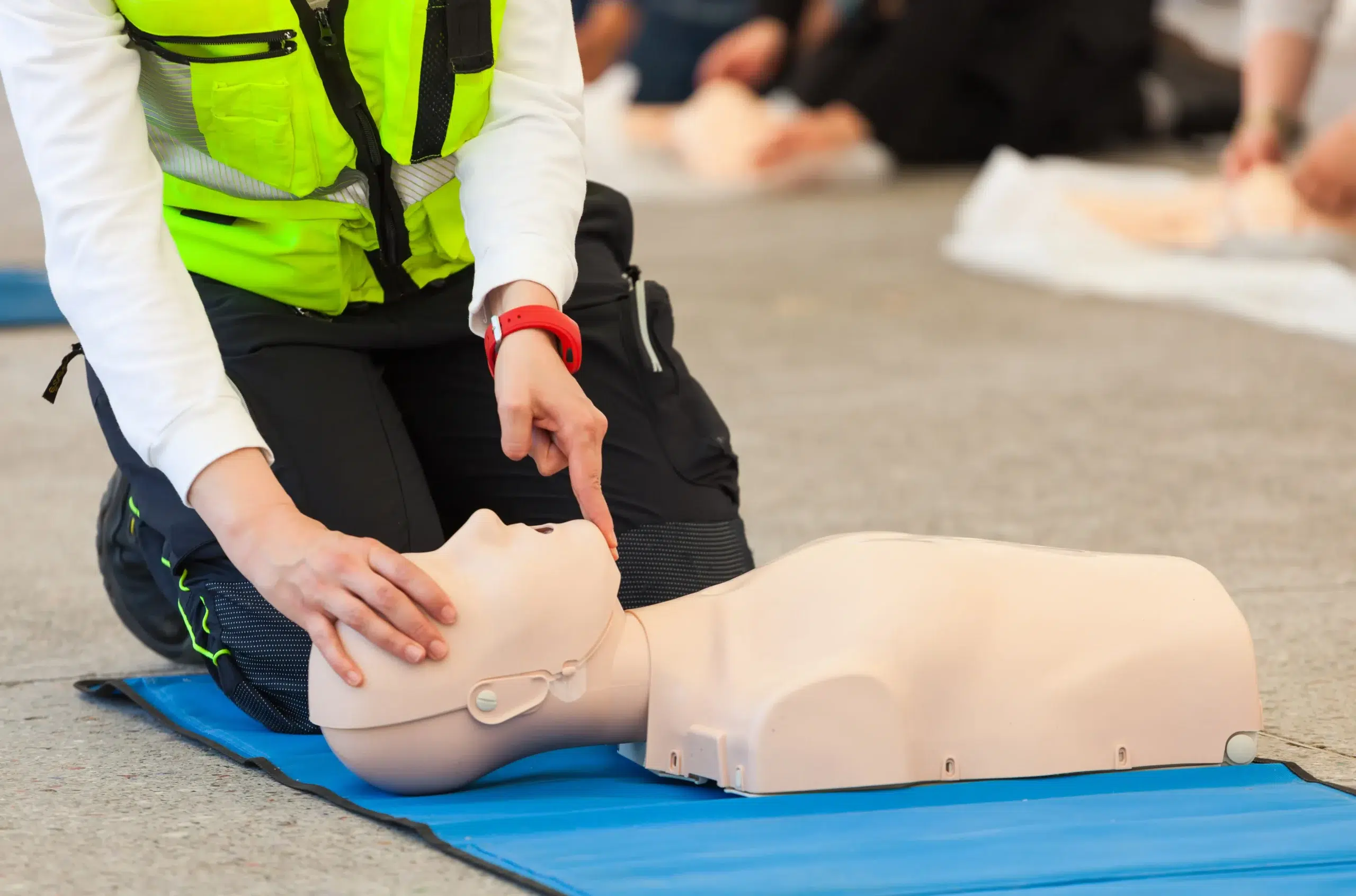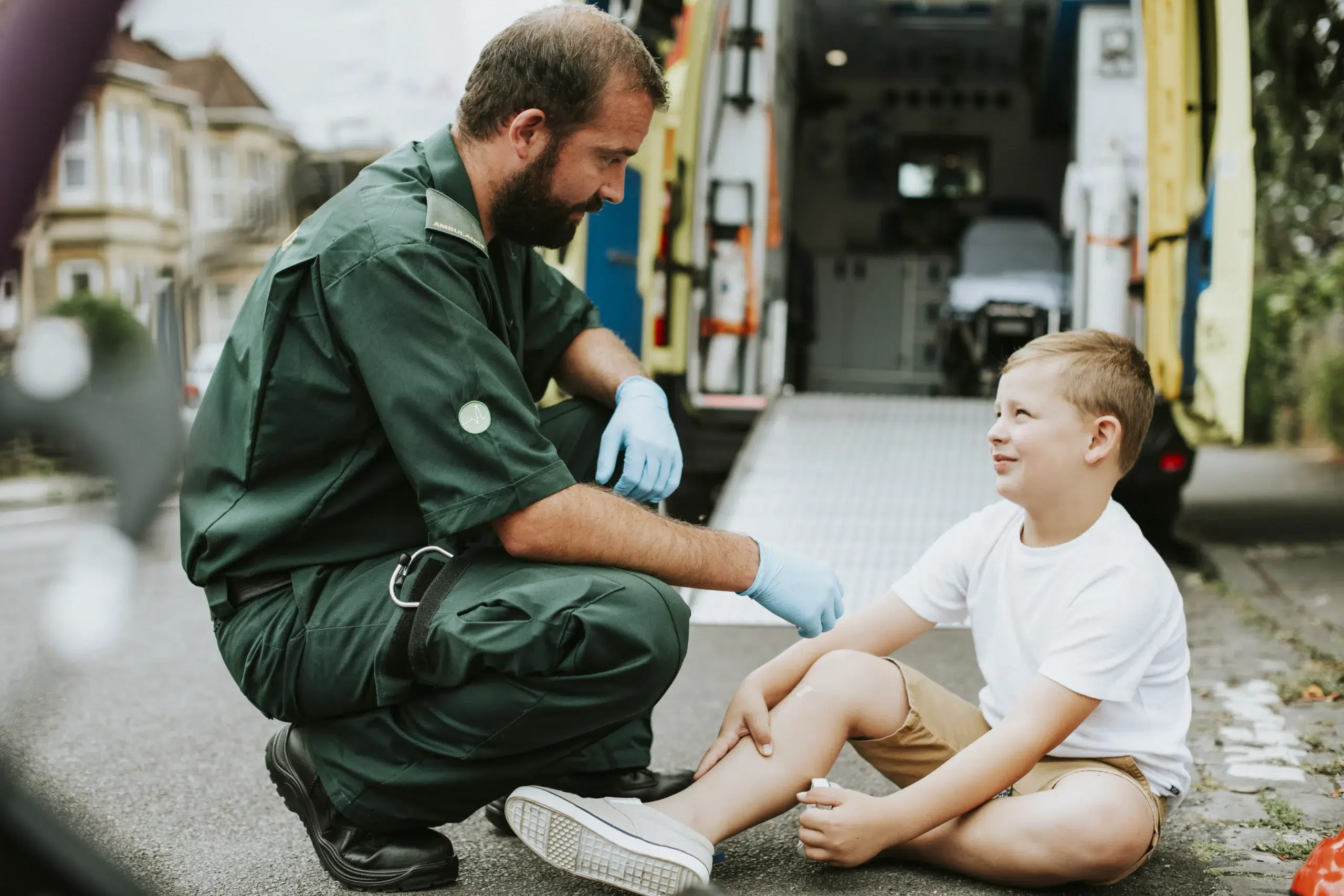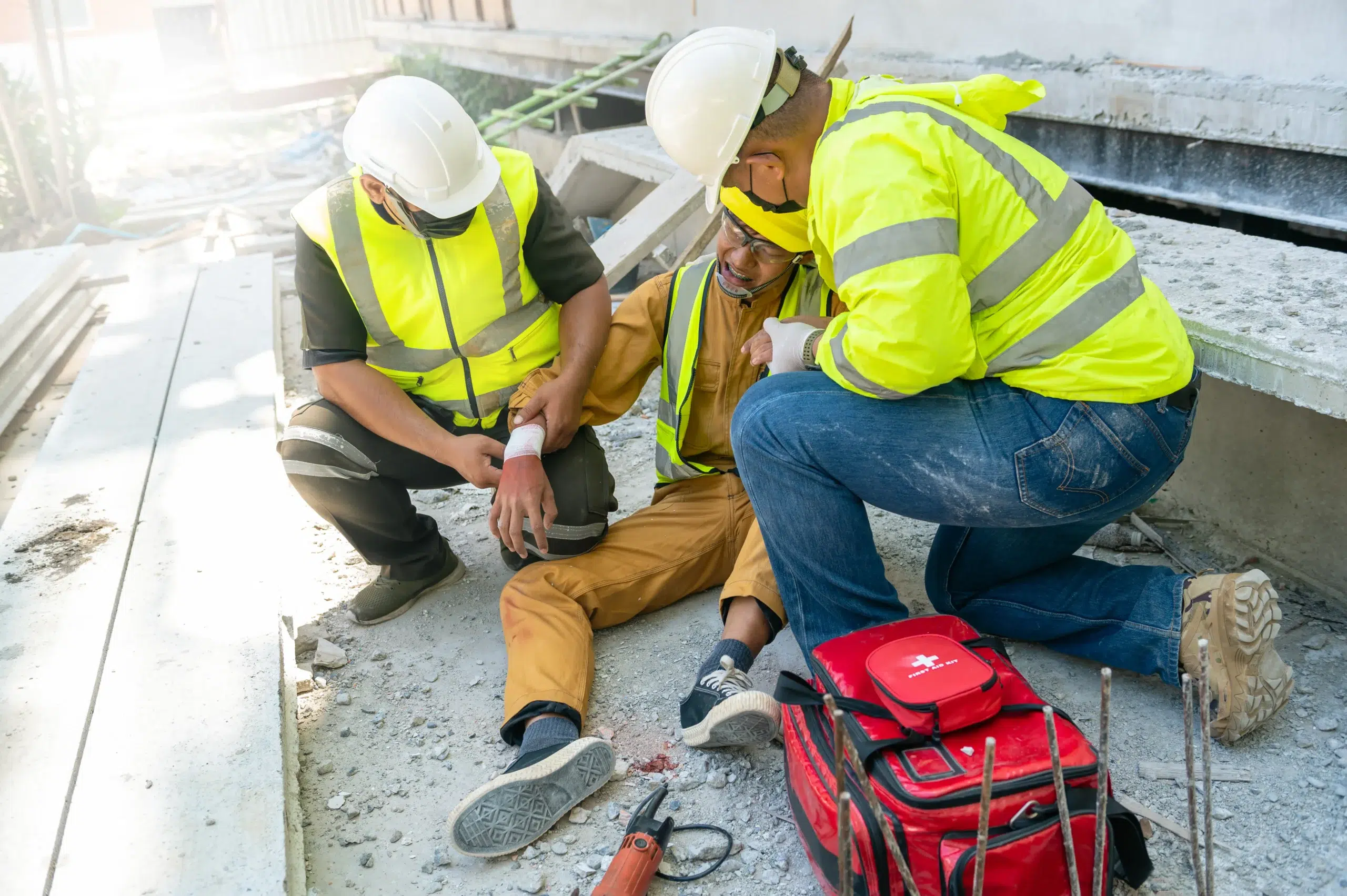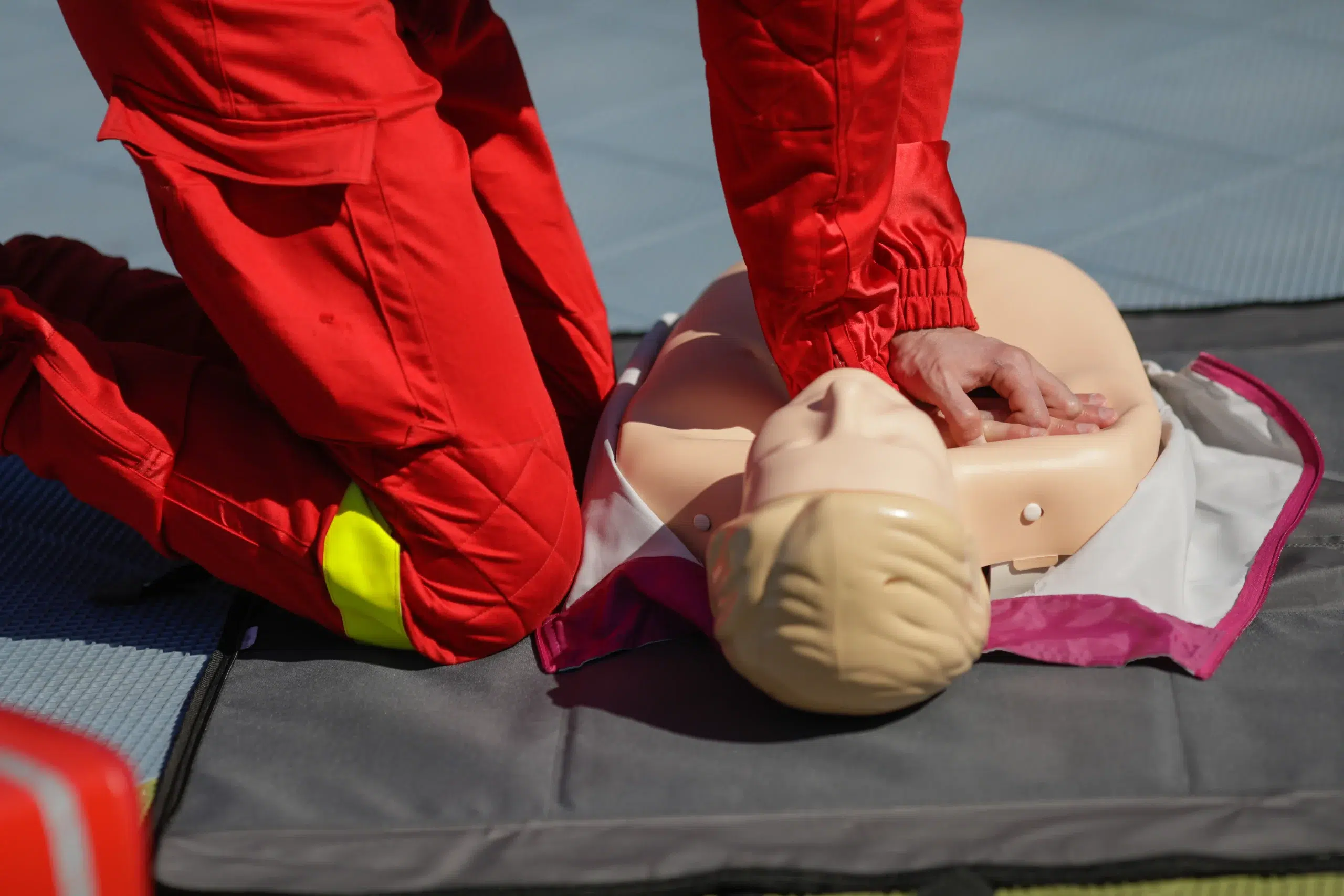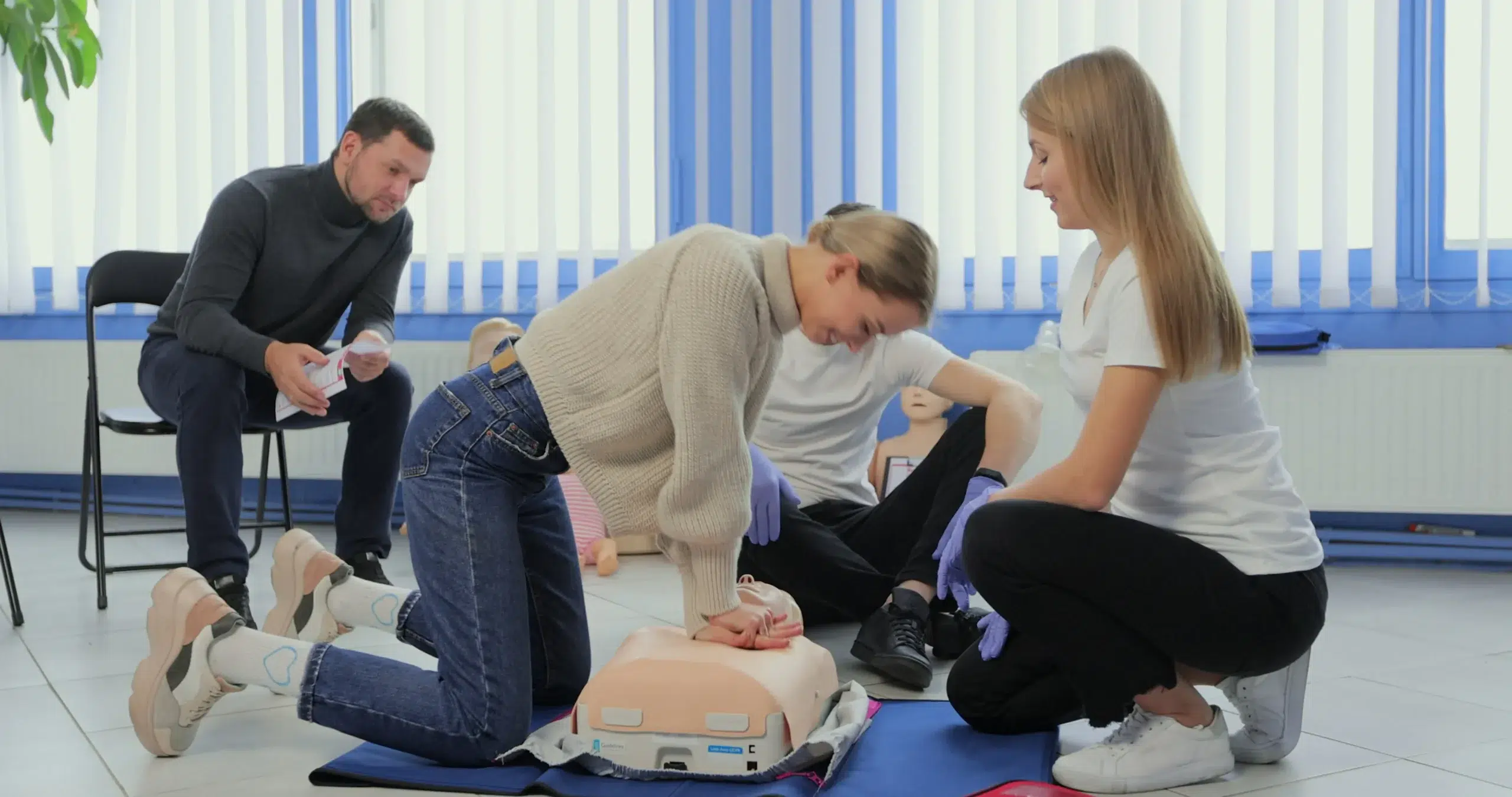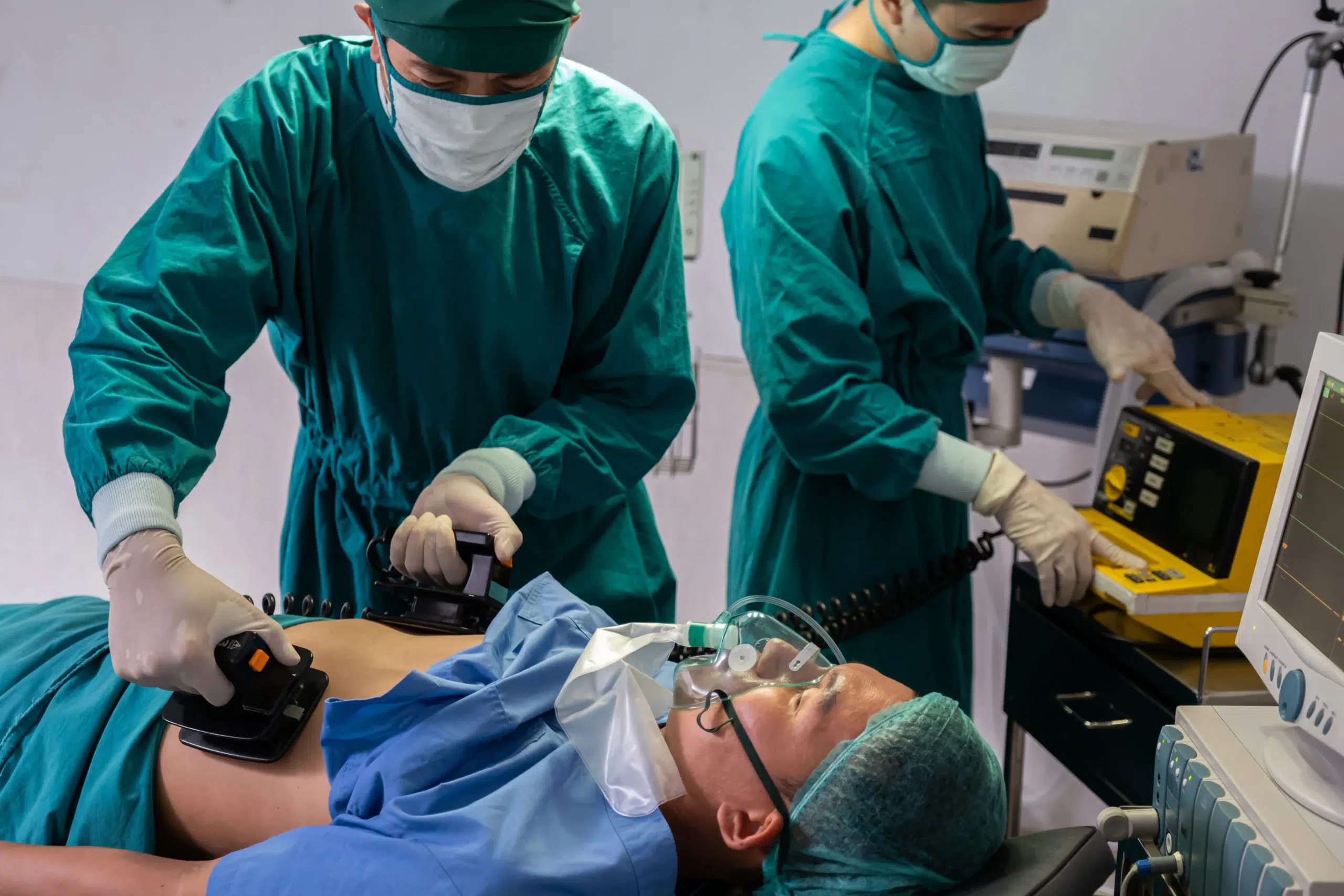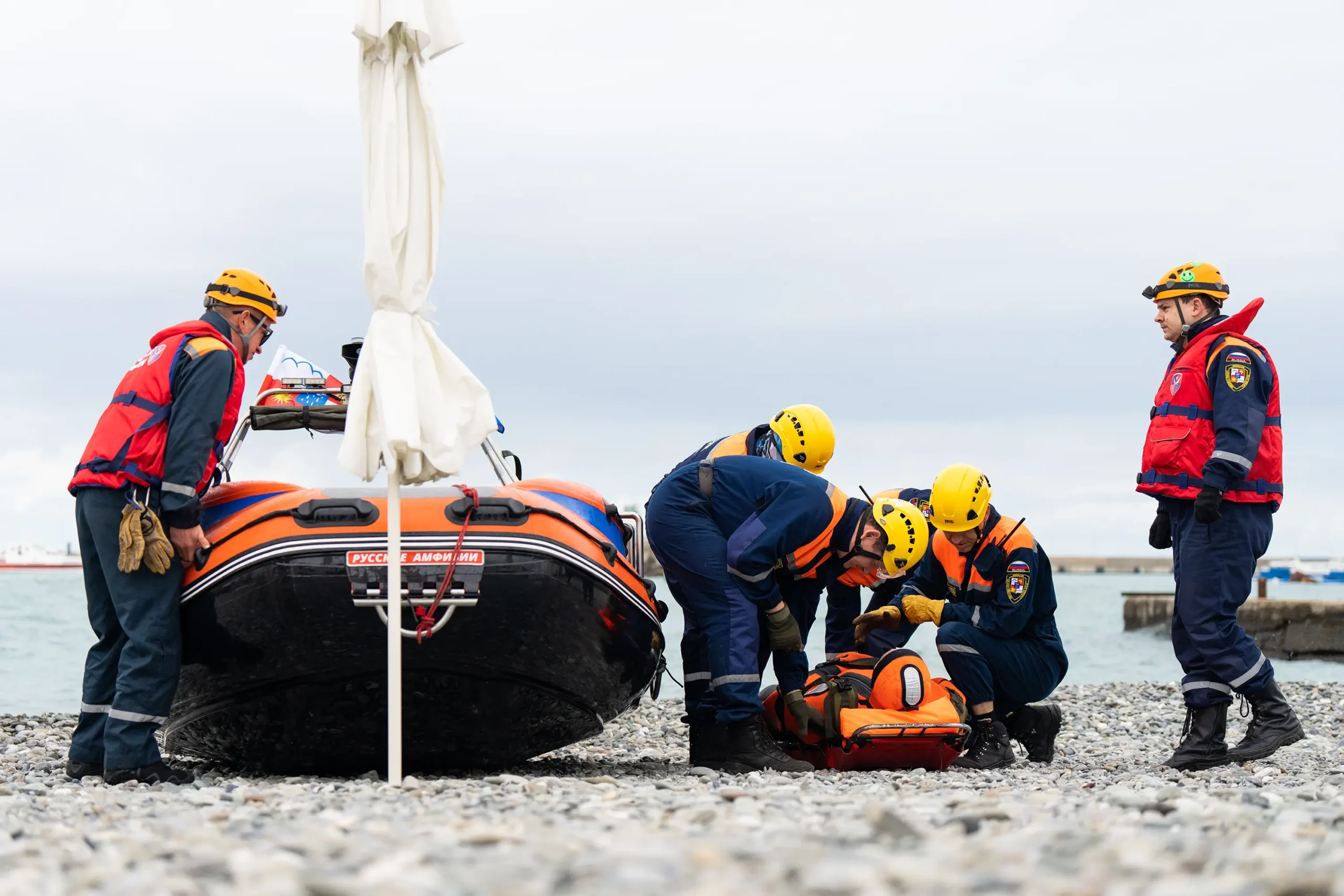Empowering yourself with life-saving skills is one of the most valuable things you can do. BLS certification provides the training and confidence to respond effectively in medical emergencies, making a real difference in critical moments. This article explores the world of BLS, answering your questions about what it is, why it’s important, and how to find the right BLS classes in Daly City. We’ll cover the key skills you’ll learn, the certification process, and the various benefits of becoming BLS certified. Whether you’re a healthcare provider or simply want to be prepared for anything, this guide will provide you with the information you need to get started.
Key Takeaways
- BLS certification empowers you to save lives: From healthcare settings to everyday situations, BLS training provides the skills to confidently respond to medical emergencies like cardiac arrest and choking.
- Choosing the right BLS class matters: Consider factors like location, schedule, and instructor qualifications when selecting a course. Providers like Millbrae CPR Classes offer various options to fit your needs.
- Staying current with BLS is essential: Regularly renew your certification and pursue continuing education opportunities to maintain your skills and knowledge of the latest AHA guidelines.
What is BLS Certification & Why is it Important?
Basic Life Support (BLS) certification equips you with the skills to respond to medical emergencies like cardiac arrest, breathing issues, and choking. It goes beyond basic first aid, encompassing techniques like CPR, AED use, and rescue breathing. Think of it as the foundation for providing immediate care in those critical moments before paramedics arrive. BLS certification emphasizes teamwork, high-quality CPR, and quickly recognizing life-threatening situations.
Why is it so important? For healthcare providers, BLS certification is often a job requirement, demonstrating a commitment to patient safety and the most current emergency care practices. But it’s not just for medical professionals. Anyone can benefit from BLS training—parents, teachers, coaches, caregivers—really, anyone who wants to be prepared to help in a crisis. Having trained individuals within a community strengthens the chain of survival and can dramatically improve outcomes during emergencies. CPR and first aid training empowers you to make a real difference when seconds count. Plus, knowing you can handle these situations brings a sense of confidence and preparedness to your everyday life. If you’re in the Daly City area, explore the courses offered by Millbrae CPR Classes covering everything from BLS certification for healthcare providers to CPR and first aid certification for the general public.
Find BLS Classes in Daly City
Finding the right BLS class in Daly City depends on your needs and preferences. Here are a few reputable providers to get you started:
Millbrae CPR Classes
Millbrae CPR Classes offers American Heart Association BLS CPR certification courses, ensuring high-quality training. They offer a comprehensive guide to BLS training in Daly City, covering everything from course options and costs to certification renewal. Their convenient location serves nearby areas like San Mateo and Millbrae too.
Safety Training Seminars
Safety Training Seminars provides AHA-certified CPR, BLS, ACLS, PALS, and First Aid courses in Daly City. They focus on excellent customer service and affordable pricing, making them a popular option.
Positive Heart CPR
Located in Daly City, Positive Heart CPR offers CPR and other certification classes. They’ve earned excellent reviews on Yelp, with students praising their engaging instructor and straightforward certification process.
Other Local Providers
You can also explore other local providers offering BLS certification. Daly City CPR Classes, for example, offers a variety of AHA-certified courses, including BLS, ACLS, PALS, and First Aid. They emphasize excellent customer service and competitive pricing. A quick online search will reveal additional options in the area.
Cost of BLS Certification
Knowing the cost of BLS certification helps you budget effectively. Let’s break down the typical expenses.
Average Class Prices
BLS certification in Daly City generally costs around $75, a worthwhile investment in your skills and career. This price is competitive and reflects the value of the training. Positive Heart CPR in Daly City offers courses around this price, reflecting the standard rate for quality instruction. Investing in a reputable training center ensures you receive proper instruction and a recognized certification.
Group Discounts & Promotions
If you’re certifying a group, explore group discounts. Many providers offer reduced rates for larger groups, making training more affordable. CPR classes in Daly City often feature these discounts. Some centers may also offer on-site classes, potentially saving on travel time and costs. Contact providers directly to discuss group options.
Additional Costs (Textbooks, Materials)
While the BLS course itself is typically around $75, factor in potential additional costs. Some courses, like those described in this guide to BLS classes in Millbrae, may require a textbook for around $20. You can often purchase these materials online. Clarify any extra expenses with your chosen provider upfront to avoid surprises and understand the total investment for your BLS certification.
Class Formats & Duration
Choosing the right BLS class format depends on your learning style and schedule. Let’s explore the options available in Daly City.
In-Person BLS Training
In-person BLS training remains a popular choice because it offers hands-on learning and direct interaction with a certified instructor. This format lets you practice skills in a controlled environment and ask questions in real-time. Providers like Millbrae CPR Classes prioritize this hands-on approach, ensuring students gain practical experience and confidence. This type of training is best for those who learn effectively in a traditional classroom setting and value direct feedback.
Online & Hybrid Options
For busy individuals, online and hybrid BLS courses offer flexibility. Online learning often involves self-paced modules and video demonstrations, allowing you to study at your convenience. Hybrid courses combine online learning with in-person skills sessions. Safety Training Seminars offers online components, making BLS certification more accessible. These formats cater to diverse learning preferences and schedules.
Time Commitment for Certification & Renewal
Understanding the time commitment for BLS certification and renewal is essential for planning. A full BLS provider course takes about 4.5 hours, while renewal courses typically require around three hours. Remember to include travel time for in-person classes and dedicated study time for online or hybrid options. Knowing the time commitment upfront helps you choose a course that fits your schedule.
What Happens in a BLS Class?
BLS classes equip you with the skills to respond to medical emergencies like cardiac arrest, choking, and stroke. You’ll learn how to assess a situation, perform CPR, use an AED, and relieve choking. These classes blend theory with hands-on practice, ensuring you’re prepared to act quickly and effectively in a real crisis. It’s about more than just techniques; it’s about building confidence and the ability to stay calm under pressure.
Key Skills You’ll Learn
In a BLS class, you’ll master essential life-saving skills. The curriculum covers recognizing the signs of a heart attack or stroke, providing high-quality CPR for adults, children, and infants, and using an automated external defibrillator (AED). You’ll also learn how to work effectively as part of a team during a resuscitation attempt and how to relieve choking. These skills are crucial for anyone working in healthcare and offer valuable skills for everyday life.
Hands-On Practice
Hands-on training is at the heart of any good BLS class. You’ll practice CPR on mannequins, simulating real-life scenarios. This allows you to develop muscle memory and get comfortable with the techniques. Instructors provide feedback and guidance, ensuring you’re performing compressions and breaths correctly. Millbrae CPR Classes emphasizes this practical approach, giving students the confidence to apply their skills in a real emergency. This focus on hands-on learning is key to mastering the techniques and becoming truly effective.
Assessment & Certification Process
After completing the training, you’ll be assessed on your practical skills and knowledge. This typically involves demonstrating CPR and AED use on a mannequin and answering questions about BLS procedures. Upon successful completion, you’ll receive your American Heart Association BLS certification card, which is valid for two years. For healthcare professionals, the RQI program offers a streamlined way to maintain your certification. This program focuses on frequent, low-dose practice and assessment, ensuring skills stay sharp.
Instructor Qualifications & Training Standards
When your health is on the line, you want to know the person providing care has the right training. Choosing a BLS class with qualified instructors is crucial for receiving high-quality instruction and ensuring you’re learning the most effective life-saving techniques. Here’s what to look for:
American Heart Association Certification
A solid indicator of quality is American Heart Association (AHA) certification. The AHA sets rigorous standards for BLS training, and instructors certified by them have demonstrated a deep understanding of the latest guidelines and practices. This certification ensures your instructor has completed a comprehensive training program and stays updated with any changes in resuscitation science. Look for training centers, like Millbrae CPR Classes, that emphasize their AHA affiliation. This commitment to AHA standards often translates to higher quality instruction and a more thorough learning experience. As mentioned in a recent Daly City CPR Classes blog post, AHA-certified courses are readily available in the area.
Healthcare Professional Backgrounds
While not always a requirement, instructors with backgrounds in healthcare often bring valuable real-world experience to the classroom. Their practical knowledge can enrich the learning process, providing context and insights that go beyond the textbook. This experience can be especially beneficial when learning complex procedures or understanding how BLS skills apply in real-life emergencies. An article discussing the critical role of BLS and ACLS in patient care highlights the importance of these certifications for healthcare professionals. This same level of expertise is valuable in a training environment.
Ongoing Instructor Education
The healthcare field is constantly evolving, and BLS techniques are no exception. It’s essential to choose instructors committed to ongoing education. Look for training centers that require their instructors to regularly refresh their certifications and participate in continuing education activities. This dedication to staying current ensures you’re learning the most up-to-date and effective life-saving methods. The importance of staying current with the latest guidelines is also emphasized in this article about BLS renewal. This commitment to continuous learning benefits everyone.
Benefits of BLS Certification
Getting your BLS certification is more than just checking a box; it’s an investment in yourself, your career, and your community. Whether you’re a healthcare professional, a childcare provider, or simply someone who wants to be prepared for anything, BLS training offers significant advantages.
Career Advancement
BLS certification is often a prerequisite for many jobs in healthcare. Employers look for candidates with up-to-date certifications, demonstrating a commitment to patient care and safety. Having this training can give you a competitive edge, opening doors to more opportunities and potentially higher salaries. It shows you’re prepared to handle emergencies and provide crucial care until more advanced medical help arrives.
Personal Emergency Preparedness
BLS training empowers you to respond effectively in a crisis. You’ll gain the confidence and skills to assess and manage medical emergencies, providing essential support until professional responders take over. This preparedness can make all the difference in situations like heart attacks, strokes, or choking incidents, whether at home, work, or out in your community. Knowing you can take action in a crisis brings peace of mind.
Community Safety
When more people in a community are trained in BLS, everyone benefits. By becoming BLS certified, you contribute to a network of prepared individuals ready to respond to medical emergencies. These skills can be invaluable in any setting, from schools and workplaces to public spaces. You become a vital link in the chain of survival, potentially saving lives and making your community a safer place. AHA BLS training creates a ripple effect, enhancing the overall safety and preparedness of your local area.
Choose the Right BLS Class
So you’re ready to sign up for a BLS class—fantastic! Choosing the right course makes all the difference in your learning experience. This section walks you through key factors to consider and questions to ask potential providers.
Factors to Consider
First, think about your schedule and learning style. Do you prefer in-person, hands-on instruction, or would a flexible online or blended learning format suit you better? Consider the class location and whether you need weekend or evening options. Also, think about your career goals. Are you getting BLS certified for a specific job or for general knowledge and preparedness? Knowing your needs helps you narrow down your choices. BLS classes in Daly City give you the skills to handle medical emergencies confidently, so choosing a program that aligns with your personal needs is essential.
Questions to Ask Providers
Once you’ve identified a few potential providers, reach out and ask questions. Inquire about the instructor’s experience and AHA certification. Ask about the class size – smaller classes often mean more personalized attention. It’s also wise to check what’s included in the course fee. Are there extra costs for materials like textbooks or pocket masks? Finally, confirm the type of BLS certification offered and ensure it meets your professional requirements. Check with providers like Safety Training Seminars and Daly City CPR Classes about their course schedules. Getting these answers upfront helps you make a smart decision.
Comparing Daly City Class Options
Daly City offers various BLS class options, each with its perks. Daly City CPR Classes offers a range of AHA-certified courses, including BLS, ACLS, PALS, and First Aid, providing comprehensive training in essential life-saving techniques. For healthcare professionals, the RQI program is a popular choice for maintaining BLS, ACLS, and PALS certifications. AHA-certified BLS CPR classes in Daly City are crucial for community safety and emergency preparedness. Compare different programs, considering cost, schedule, and instructor qualifications, to find the best fit.
Maintain Your BLS Certification
Once you’ve earned your BLS certification, staying current is key. Knowing the renewal process, pursuing continuing education, and keeping up with the latest American Heart Association (AHA) guidelines will ensure you’re always prepared to provide effective, life-saving care.
Renewal Process & Requirements
BLS certification is valid for two years. It’s essential to renew your certification before it expires to maintain your qualifications and ability to provide assistance. Check with your certifying organization, such as the AHA, for specific renewal requirements and deadlines. Many providers, like Millbrae CPR Classes, offer streamlined renewal courses to make the process straightforward.
Continuing Education
Even if your certification isn’t due for renewal, continuing education is crucial for healthcare professionals. Refresher courses and workshops can reinforce your skills and introduce you to updated techniques. Look for opportunities to expand your knowledge through advanced training or specialized certifications, such as ACLS (Advanced Cardiovascular Life Support) or PALS (Pediatric Advanced Life Support), to further develop your life-saving expertise.
Staying Updated with AHA Guidelines
The AHA regularly updates its guidelines based on the latest research and best practices. Staying informed about these changes is vital for BLS providers. Regularly review the AHA website for updates and consider subscribing to their publications or newsletters to stay informed on current BLS practices. This proactive approach ensures you’re always using the most effective techniques when providing care.
Common BLS Misconceptions
It’s easy to get confused about BLS certification, especially if you’re new to healthcare or exploring career options. Let’s clear up a few common misconceptions.
Who Needs BLS Training?
While BLS training is crucial for healthcare professionals like doctors and nurses, it’s not just for them. Anyone working in a healthcare setting, including medical assistants, dental hygienists, and even non-clinical staff, benefits from BLS training. Many employers prefer candidates with this certification, as it shows a commitment to patient safety. Having these skills can make a real difference in any medical emergency, at work or in the community. Think of places like schools, gyms, or even offices – BLS trained individuals can be invaluable in these environments.
BLS vs. CPR
People often use BLS and CPR interchangeably, but there’s an important distinction. CPR teaches the basics of chest compressions, rescue breaths, and how to recognize cardiac arrest. BLS builds on those CPR skills, adding techniques for using a bag-valve mask, working with a team during resuscitation, and relieving airway obstructions. BLS certification is generally the preferred qualification for healthcare providers because of this broader skillset.
Importance of Regular Recertification
Your BLS certification isn’t a one-time thing. Guidelines and best practices in emergency care change, so regular recertification is essential to keep your skills sharp and ensure you’re prepared to respond effectively in a crisis. Most employers require healthcare providers to maintain a current BLS certification, making staying on top of renewals crucial for your career. It also demonstrates a continued commitment to providing high-quality care.
Related Articles
- BLS in Daly City: Your Guide to Courses – Millbrae CPR Classes
- BLS Classes in San Mateo: A Complete Guide
- BLS Certification in Millbrae: Your Complete Guide – Millbrae CPR Classes
- HeartCode BLS San Mateo: Your Certification Guide – Millbrae CPR Classes
- Basic Life Support (BLS) Guide for San Mateo – Millbrae CPR Classes
Frequently Asked Questions
How long does BLS certification last, and how do I renew it? BLS certification is typically valid for two years. Renewal involves taking a recertification course before your current certification expires. Check with your certifying organization or training center for specific renewal requirements and available courses.
What’s the difference between BLS and CPR certification? CPR training focuses on the core skills of chest compressions, rescue breaths, and recognizing cardiac arrest. BLS encompasses CPR and adds more advanced techniques like using a bag-valve mask, team resuscitation, and relieving airway obstructions. BLS certification is generally the preferred and often required qualification for healthcare providers.
Is BLS certification only for healthcare professionals? While essential for healthcare professionals, BLS certification benefits anyone who wants to be prepared for a medical emergency. Teachers, coaches, parents, and anyone working in a public-facing role can gain valuable skills and confidence from BLS training.
What can I expect during a BLS class? Expect a combination of interactive learning, demonstrations, and hands-on practice. You’ll learn how to recognize and respond to various medical emergencies, perform CPR on adults, children, and infants, and use an AED. You’ll also practice these skills on mannequins and receive feedback from certified instructors.
How do I choose the right BLS class in Daly City? Consider factors like your schedule, preferred learning style (in-person, online, or blended), and the instructor’s qualifications. Look for AHA-certified courses and ask potential providers about class size, included materials, and the type of BLS certification offered to ensure it meets your needs.
